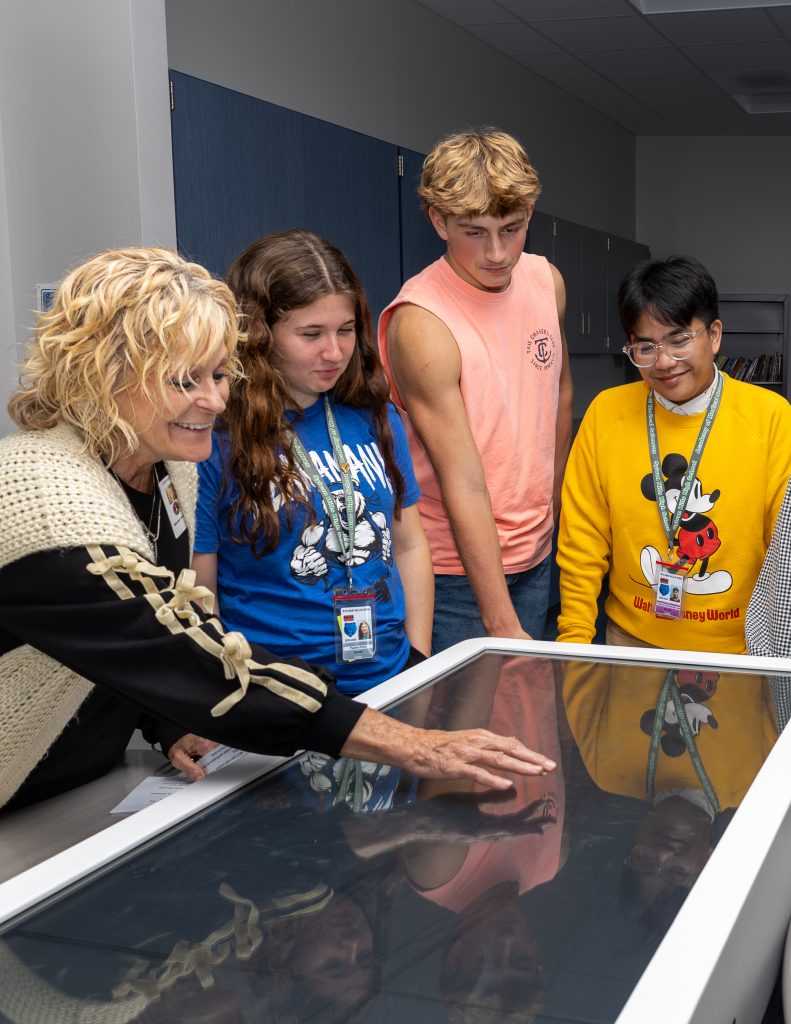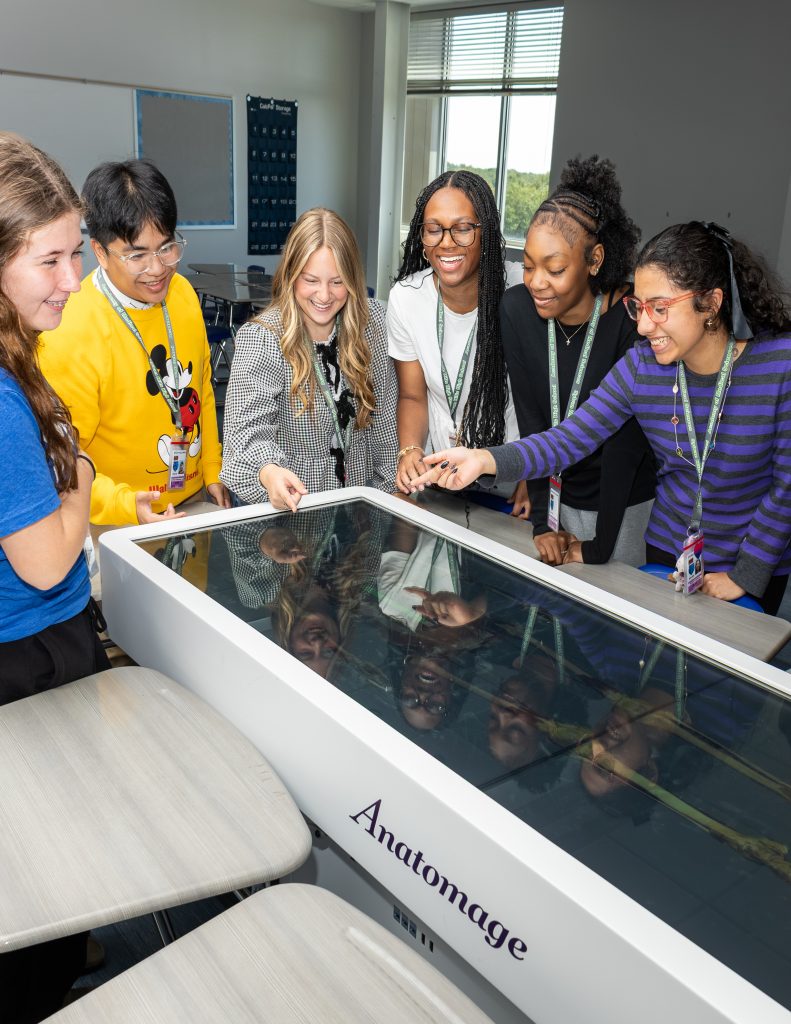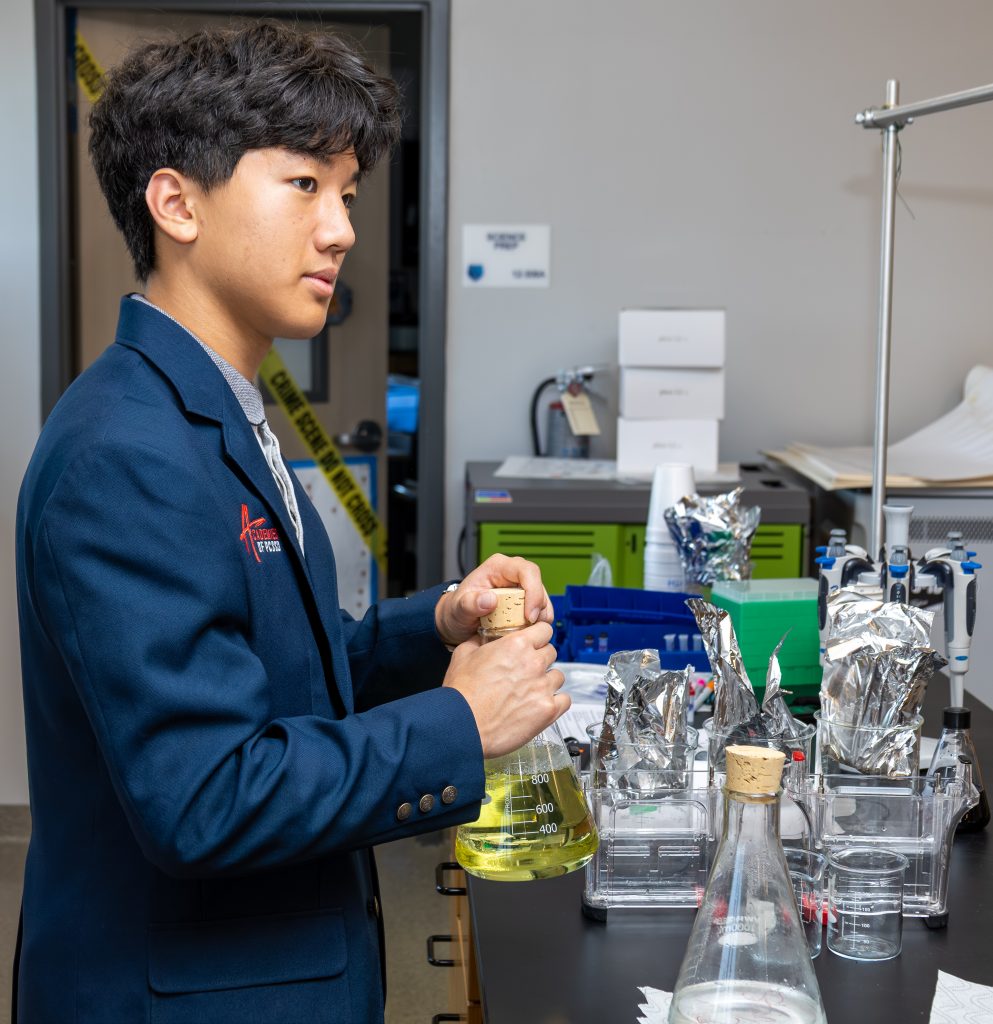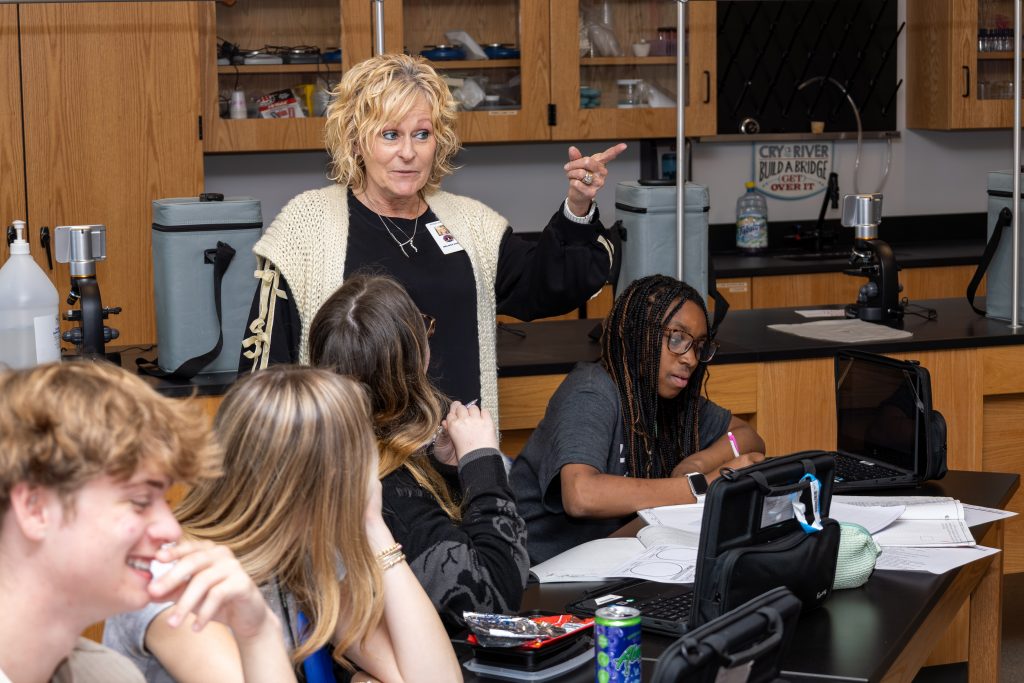by Jessica Hughes Ford
At Sylvan Hills High School in Sherwood, the future doesn’t feel distant. It hums in the hallways and feels very much present in the here-and-now. Students run gel electrophoresis in the lab, complete CPR and financial management training, and sit for mock interviews with local professionals. It is all part of the Academies of Central Arkansas, a relatively new model linking high school learning to real careers.
For senior Nathan Lam, the effect is personal.
“I’ve always wanted to help people,” he said. “Health care seemed like the place where you can directly do that. But I didn’t really know what that looked like until I got into this program.”
Through his pathway at Sylvan Hills, Lam has taken medical courses, job shadowed, and interned at Arkansas Children’s Research Institute, a partner of the Academies. There, he helped with a research project on RSV, a common respiratory infection in children and sometimes adults, and realized the lab was not daunting anymore. “I used a micropipette and did RNA isolation and thought, ‘Wait, I’ve done this in my classes.’ The hands-on work made me more confident.”
That word, confidence, comes up often among Sylvan Hills students.
Nathan credits his medical sciences teacher, Melissa Duncan. “I appreciate her humor and the way she answers questions until you get it. That makes you want to ask, which makes you want to learn,” he said.
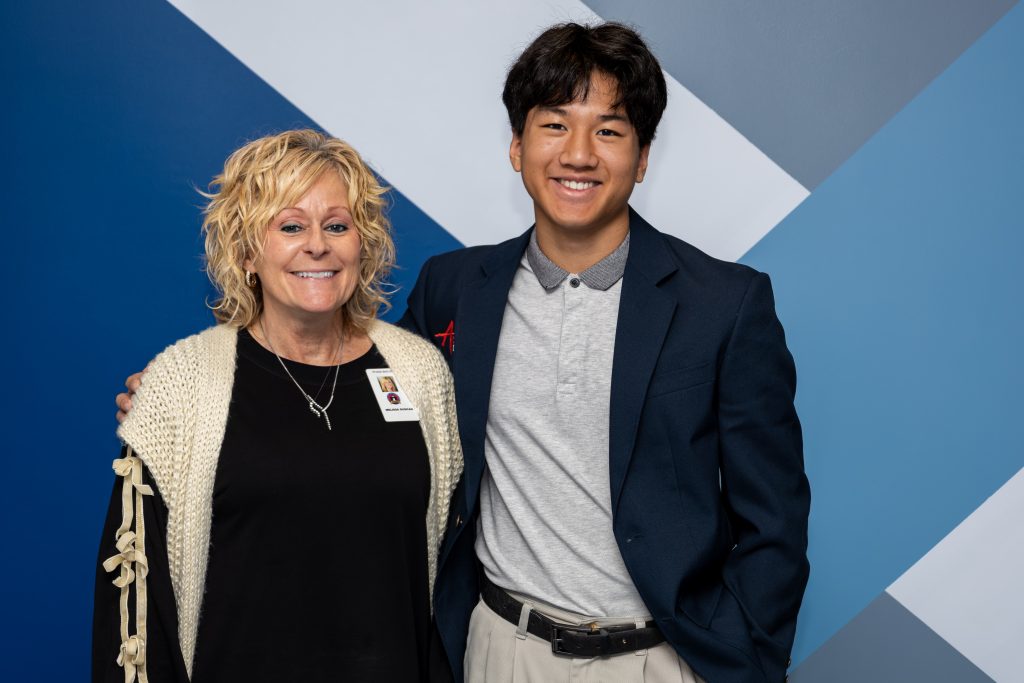
Duncan, a veteran biology and AP instructor, has seen a major shift. “Before, even in AP biology, we did level-one labs,” she said. “Now my students are purifying proteins and talking about recombinant genes like it’s normal. That’s a shift from rote learning to doing.”
Partnerships make that possible. “I’m not a doctor; I don’t suture,” Duncan said with a laugh. “But with Academy partners, I got a physician in my classroom so students could try it. By doing so, they become confident,” she said. “They are steps ahead of most graduating seniors, and suddenly bigger goals don’t seem out of reach.”
Felicia Wheat, lead academy coach for Pulaski County Special School District, has been in her role for about three years. “In classrooms, teachers teach through the lens of a career,” she said. “In geometry, for example, you might apply formulas to calculate the cost of carpeting a room.”
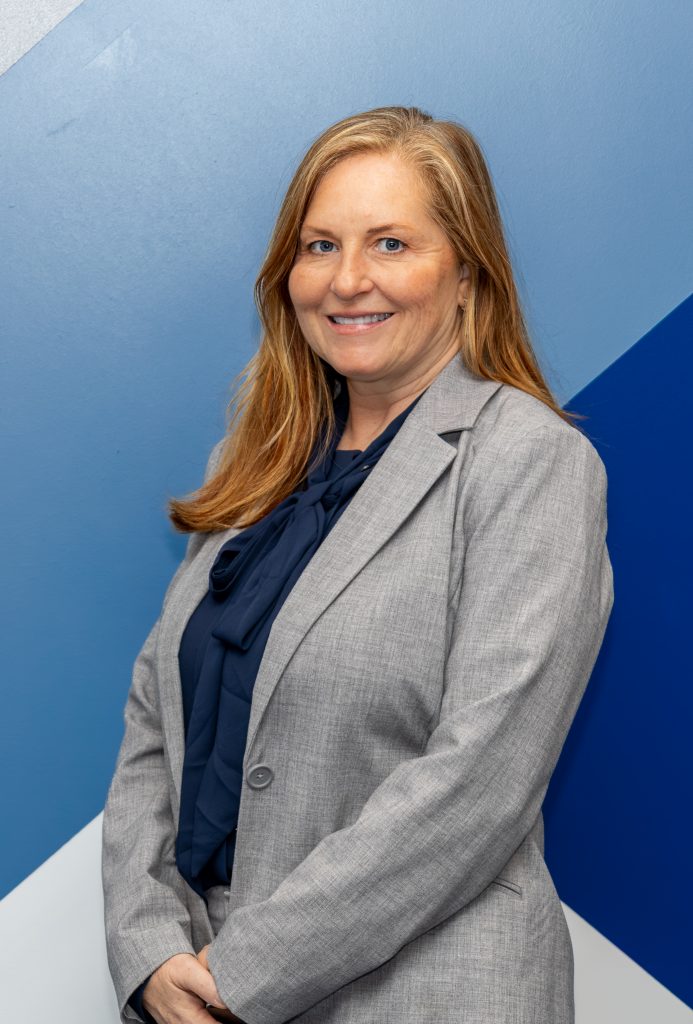
The Academies began locally in 2017, when the Little Rock Regional Chamber took four superintendents to Nashville, Tennessee to study its career-connected model. Nashville’s approach helped lift graduation rates and industry credentials. Central Arkansas became one of the few regions nationwide to adopt it across multiple districts, requiring coordination of class schedules, staff roles and planning. The up-front work has been significant, but it is paying off.
The Academies’ latest annual report shows:
• Industry-recognized credentials rose from 800 to 2,899
• 94 partners contributed almost 12,000 hours, valued at $1.17 million
• Internships jumped from 112 to 894 in one year
• Students earning 3 or higher on AP exams increased 38 percent
Enrollment at Academy high schools has grown three years in a row, a counter-trend in public education. “When students have real options, they are choosing our public high schools because of the experiences they get,” said Markous Jewett, president of the Academies of Central Arkansas Foundation.
At Sylvan Hills, three academies house multiple pathways, each led by a consistent team of adults who travel with students year to year.
“Our campus grew from 680 to more than 1,500 students,” said Tracy Allen, principal at Sylvan Hills. “The academy structure created smaller learning communities so kids don’t fall through the cracks. Each academy has its own principal and counselor, and core teachers are aligned to academies.”
Soft skills are taught alongside technical training. Last year’s theme was networking. Teachers greeted students with handshakes, practiced professional introductions, and hosted a luncheon where students learned etiquette and talked with business leaders by career interest. This year’s theme is leadership.
Freshmen meet career experts; sophomores take industry tours; juniors complete job shadows, and seniors pursue certifications, capstones and internships with direct feedback from professionals. Local partners make it real and more successful. Arkansas Children’s alone invests thousands of hours, bringing marketing, HR, IT and clinical experts into classrooms while hosting internships and certifications. WER Architects and Michael Baker International, an engineering firm, co-teach standards and host tours in engineering. At Mills High School, steel fabricator Lexicon, Inc. transformed welding enrollment from 2 to 135 in 16 months by investing in onsite welding bays.
The message from partners mirrors what students hear in labs: high expectations and real purpose. As Patrikc Schueck, president and CEO of Lexicon, told a packed auditorium of construction and welding students, “This work is hard and we’ll push you. Whether you work for us or our competitors isn’t the point. Find your purpose and pursue it.”
For business leaders trying to bring more jobs and opportunity into the state, this is economic development in action. “When companies scout central Arkansas, their second question after land is workforce,” said Jewett. “Now local leaders can point to specific workforce pipelines and the number of projected graduates by field. These new employers bring revenue back to districts, strengthening schools and neighborhoods in a full-circle way.”
There are deeper hopes too, like deterring youth involvement in harmful paths by showing them real futures. Teachers and students alike consistently attribute the transformation using the same word: confidence.
Ask Lam the greatest thing the program has given him: “Confidence,” he said. “Research used to be scary. Now the lab feels familiar. Interviews feel doable.”
Duncan smiles at that. “If they are frustrated, they are learning,” she said. “This program gives kids the chance to struggle productively, but we are setting them up to succeed in real life.”
The Academies of Central Arkansas are not just building resumes. They are building the state’s workforce and the confidence for a brighter future.

